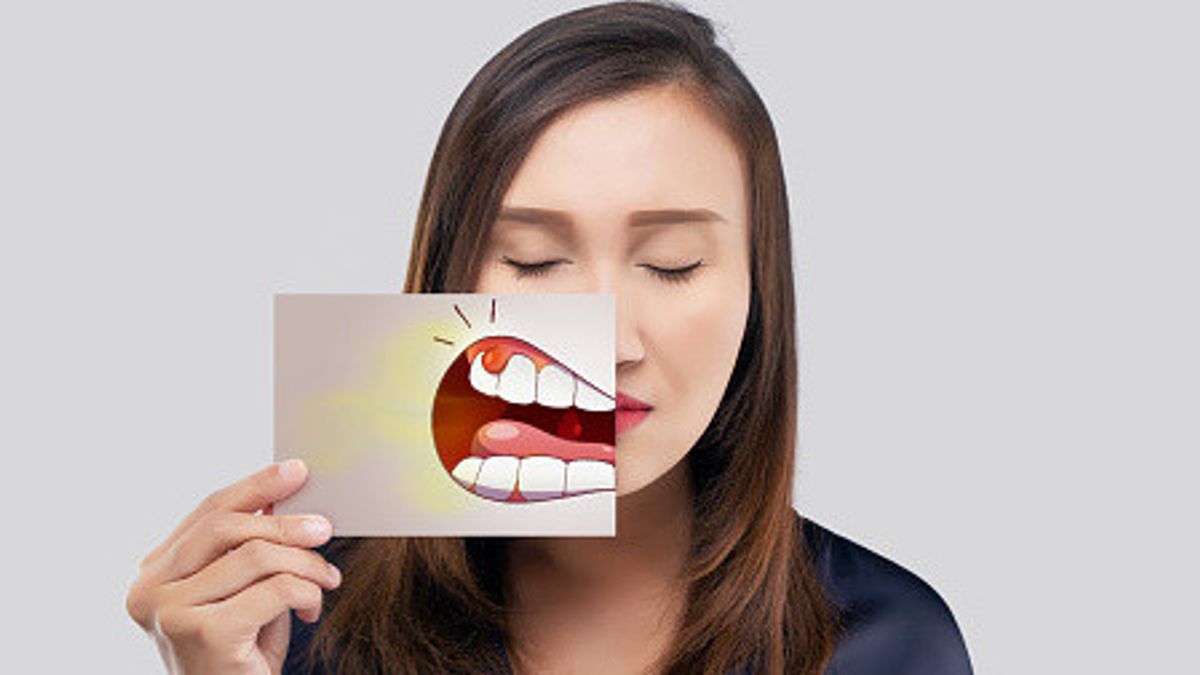YOGYAKARTA – Most adults have experienced gum inflammation which is medically called gingivitis. This condition, generally mild symptoms. But it can become difficult if not addressed immediately.
Gingivitis is caused by a buildup of bacteria around the gums. This condition is followed by symptoms of red, swollen gums, and can bleed when brushing your teeth. Launching Medical News Today, Friday, July 29, gingivitis can heal by itself if you maintain good oral hygiene. Such as brushing your teeth regularly and longer, flossing regularly, and antiseptic mouthwash can also help.
There are two types of gingivitis, the first is triggered by dental plaque buildup that can irritate, cause inflammation, discoloration, and pain. Besides being caused by plaque buildup, gingival lesions can also be triggered by bacterial, viral, and fungal infections. Inflammation, known as the body's response to allergic reactions, disease, and reactions to foreign bodies. It could also be due to wearing dentures.
Gingivitis can trigger more severe symptoms, called periodontitis. Usually, periodontitis can cause complications, even tooth loss.

Specifically, when plaque accumulates, bacteria accumulate around the teeth. Dental plaque is a biofilm that naturally accumulates. This occurs when bacteria stick to the smooth surface of the teeth. Then the plaque hardens into tartar. It is yellowish white in color and can only be cleaned by a dental professional.
When plaque and tartar buildup triggers an immune response, it can potentially damage gum tissue. Eventually the patient may develop further complications including tooth fracture.
In addition to those mentioned above, hormonal changes during puberty, menopause, the menstrual cycle, and pregnancy. It can also be triggered by certain diseases, such as cancer, diabetes, HIV, and the consumption of drugs that affect saliva production. In fact, smokers and people with a certain age can also trigger gingivitis. There are also those who experience it because of a family history.
Launching the Mayo Clinic, there are three ways to prevent gingivitis. First, maintain oral hygiene, at least brush your teeth twice a day in the morning and before going to bed. Flossing can be done twice a day. Dental expert advice, flossing can be done before you brush your teeth so that food particles and bacteria are more easily released.
Second, check your teeth regularly at least every 6-12 months. Third, live a healthy lifestyle, such as managing blood sugar for diabetics and eating healthy foods.
The English, Chinese, Japanese, Arabic, and French versions are automatically generated by the AI. So there may still be inaccuracies in translating, please always see Indonesian as our main language. (system supported by DigitalSiber.id)













